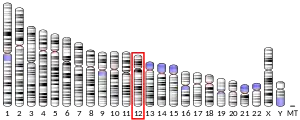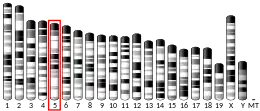BRAP (gene)
BRCA1 associated protein is a protein that in humans is encoded by the BRAP gene. [5]
| BRAP | |||||||||||||||||||||||||||||||||||||||||||||||||||
|---|---|---|---|---|---|---|---|---|---|---|---|---|---|---|---|---|---|---|---|---|---|---|---|---|---|---|---|---|---|---|---|---|---|---|---|---|---|---|---|---|---|---|---|---|---|---|---|---|---|---|---|
| Identifiers | |||||||||||||||||||||||||||||||||||||||||||||||||||
| Aliases | BRAP, BRAP2, IMP, RNF52, BRCA1 associated protein | ||||||||||||||||||||||||||||||||||||||||||||||||||
| External IDs | OMIM: 604986 MGI: 1919649 HomoloGene: 4926 GeneCards: BRAP | ||||||||||||||||||||||||||||||||||||||||||||||||||
| |||||||||||||||||||||||||||||||||||||||||||||||||||
| |||||||||||||||||||||||||||||||||||||||||||||||||||
| |||||||||||||||||||||||||||||||||||||||||||||||||||
| |||||||||||||||||||||||||||||||||||||||||||||||||||
| |||||||||||||||||||||||||||||||||||||||||||||||||||
| Wikidata | |||||||||||||||||||||||||||||||||||||||||||||||||||
| |||||||||||||||||||||||||||||||||||||||||||||||||||
Function
The protein encoded by this gene was identified by its ability to bind to the nuclear localization signal of BRCA1 and other proteins. It is a cytoplasmic protein which may regulate nuclear targeting by retaining proteins with a nuclear localization signal in the cytoplasm. [provided by RefSeq, Jul 2008].
References
- GRCh38: Ensembl release 89: ENSG00000089234 - Ensembl, May 2017
- GRCm38: Ensembl release 89: ENSMUSG00000029458 - Ensembl, May 2017
- "Human PubMed Reference:". National Center for Biotechnology Information, U.S. National Library of Medicine.
- "Mouse PubMed Reference:". National Center for Biotechnology Information, U.S. National Library of Medicine.
- "Entrez Gene: BRCA1 associated protein". Retrieved 2018-03-23.
Further reading
- Matheny SA, Chen C, Kortum RL, Razidlo GL, Lewis RE, White MA (January 2004). "Ras regulates assembly of mitogenic signalling complexes through the effector protein IMP". Nature. 427 (6971): 256–60. Bibcode:2004Natur.427..256M. doi:10.1038/nature02237. PMID 14724641. S2CID 4416552.
- Asada M, Ohmi K, Delia D, Enosawa S, Suzuki S, Yuo A, Suzuki H, Mizutani S (September 2004). "Brap2 functions as a cytoplasmic retention protein for p21 during monocyte differentiation". Mol. Cell. Biol. 24 (18): 8236–43. doi:10.1128/MCB.24.18.8236-8243.2004. PMC 515069. PMID 15340083.
- Chen C, Lewis RE, White MA (May 2008). "IMP modulates KSR1-dependent multivalent complex formation to specify ERK1/2 pathway activation and response thresholds". J. Biol. Chem. 283 (19): 12789–96. doi:10.1074/jbc.M709305200. PMC 2442335. PMID 18332145.
- Mallin EA, Pavlicek W (April 2008). "55-year-old woman with menopausal symptoms and a family history of breast cancer". Mayo Clin. Proc. 83 (4): 485–8. doi:10.4065/83.4.485. PMID 18380995.
- Czyzyk J, Chen HC, Bottomly K, Flavell RA (August 2008). "p21 Ras/impedes mitogenic signal propagation regulates cytokine production and migration in CD4 T cells". J. Biol. Chem. 283 (34): 23004–15. doi:10.1074/jbc.M804084200. PMC 2516986. PMID 18577512.
- Keinan-Boker L, Lerner-Geva L, Kaufman B, Meirow D (October 2008). "Pregnancy-associated breast cancer". Isr. Med. Assoc. J. 10 (10): 722–7. PMID 19009954.
- Chen JS, Hu HY, Zhang S, He M, Hu RM (May 2009). "Brap2 facilitates HsCdc14A Lys-63 linked ubiquitin modification". Biotechnol. Lett. 31 (5): 615–21. doi:10.1007/s10529-009-9914-7. PMID 19152073. S2CID 22550914.
- Ozaki K, Sato H, Inoue K, Tsunoda T, Sakata Y, Mizuno H, Lin TH, Miyamoto Y, Aoki A, Onouchi Y, Sheu SH, Ikegawa S, Odashiro K, Nobuyoshi M, Juo SH, Hori M, Nakamura Y, Tanaka T (March 2009). "SNPs in BRAP associated with risk of myocardial infarction in Asian populations". Nat. Genet. 41 (3): 329–33. doi:10.1038/ng.326. PMID 19198608. S2CID 27136281.
- Ozaki K, Sato H, Inoue K, Tsunoda T, Sakata Y, Mizuno H, Lin TH, Miyamoto Y, Aoki A, Onouchi Y, Sheu SH, Ikegawa S, Odashiro K, Nobuyoshi M, Juo SH, Hori M, Nakamura Y, Tanaka T (March 2009). "SNPs in BRAP associated with risk of myocardial infarction in Asian populations". Nat. Genet. 41 (3): 329–33. doi:10.1038/ng.326. PMID 19198608. S2CID 27136281.
This article incorporates text from the United States National Library of Medicine, which is in the public domain.
This article is issued from Wikipedia. The text is licensed under Creative Commons - Attribution - Sharealike. Additional terms may apply for the media files.



